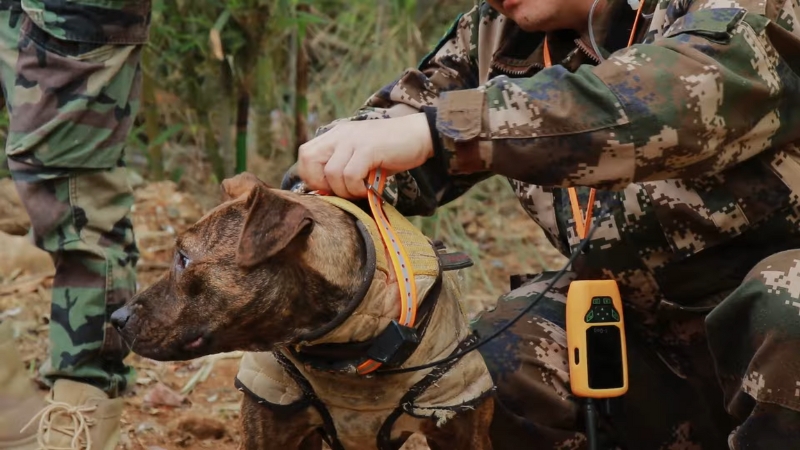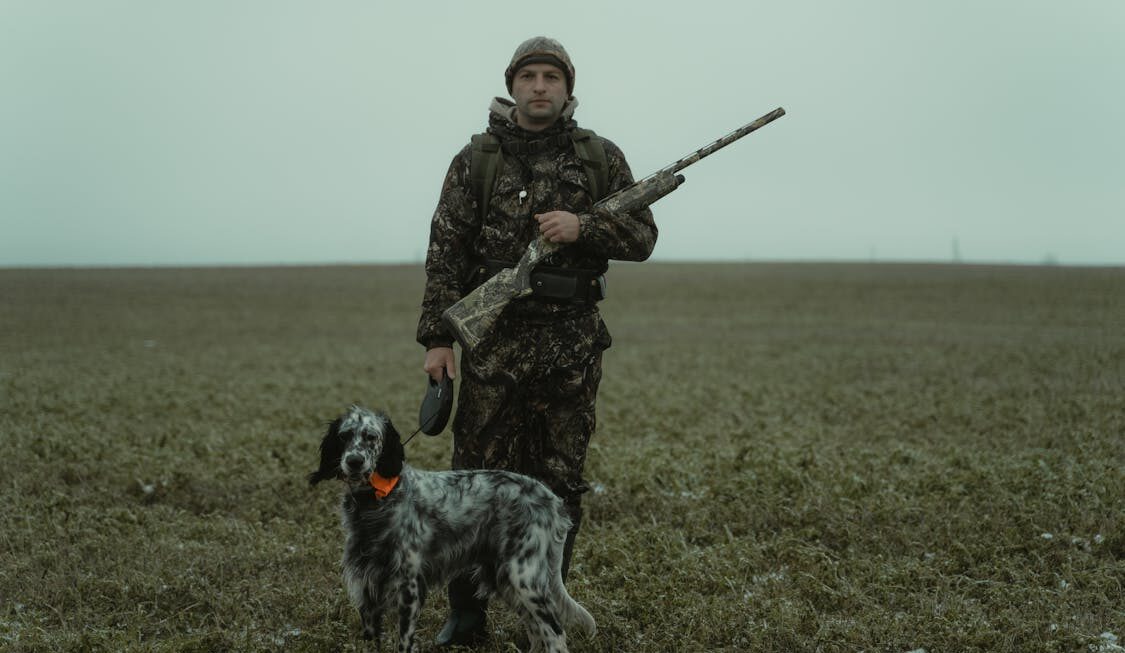Hunters need fast and reliable tools to track dogs in extensive forests or open fields. GPS tracking apps for hunting dogs provide real-time location updates, movement history, and map overlays.
These tools help protect the safety of dogs and support better decisions in the field. Every hunter should use one to avoid losing valuable time or risking a dog’s life.
We will attempt to outline the most effective options on the market and describe how they perform in real hunting conditions.
Why Use Real-Time Dog GPS Tracker Apps in the Field
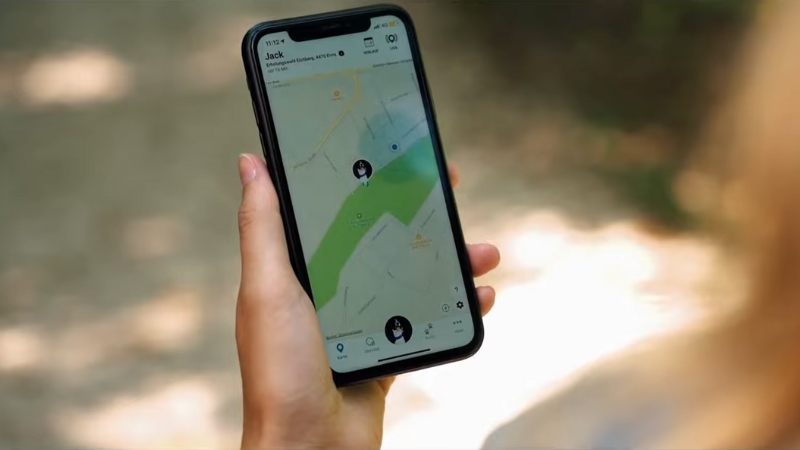
Hunters depend on precise data when dogs run far ahead. A real-time dog GPS tracker cuts that uncertainty. It allows instant updates on position, direction, and status.
Some models also include offline tracking options for remote areas. Using an app with the right collar can make or break a hunt.
A 2023 study by the American Hunting Dog Association found that 71 percent of lost hunting dogs were off-leash for more than 15 minutes without tracking support.
Recovery was fastest when GPS collars were paired with mobile tracking apps. Simple tools can stop panic and save time.
How GPS Dog Tracking Works in Real Conditions
The most popular dog tracking devices for hunters use two systems. One uses satellite communication, such as Garmin GPS, the other links collars to mobile networks and syncs with a smartphone app. Most users choose one based on terrain and signal availability.
Tracking collars connect to the dog and send data back to the app. That includes location, speed, movement path, and whether the dog stops or changes direction.
A strong GPS collar for dogs must function effectively in various environments, including under trees, in mud, and after water contact. Apps translate those signals into maps and alerts.
Features to Compare in Dog Tracking Systems
Feature
Mobile App Trackers
Satellite GPS Trackers
Requires Cell Signal
Yes
No
Works Offline
Limited
Yes
Battery Life
Moderate
Long
Accuracy in Dense Terrain
Variable
High
Monthly Subscription
Often
Rare
3 Best GPS for Hunting Dogs with App Support (2025)
Several brands now lead the market in hunting dog tracking systems. Most offer mobile integration, customizable maps, and alerts. All include collar and handheld support, but the app adds flexibility and ease of use.
1. Garmin Alpha 300i with Garmin Dog Tracker App
Garmin remains the top choice for many professional hunters. The Alpha 300i model supports up to 20 dogs and links with the Garmin dog tracker app.
The system delivers highly accurate GPS updates every 2.5 seconds. It works even when mobile networks fail.
The app enables hunters to mark locations, view dog statistics, and set range alerts. Garmin products have remained trusted since 2010 for their offline durability and strong satellite support.
Field testers in Montana praised its ability to work under thick canopies.
2. Dogtra Pathfinder 2: Affordable GPS Collar for Dogs
Dogtra offers one of the most accurate mobile GPS trackers for hunters who want lower costs. The Pathfinder 2 pairs with a phone using the Dogtra GPS app.
It gives real-time updates without delays. Maps should be downloaded in advance for use without an internet connection.
Users can define safety zones and receive alerts when dogs cross lines. The unit has been tested across different terrains in Oregon and passed both cold and heat stress trials.
3. Fi Smart Collar Series 3: Dog Tracking App with Map
View this post on Instagram
The Fi Series 3 collar works best in open fields and suburban areas with wooded sections. It connects through LTE and Wi-Fi and uses the Fi app.
The app offers live dog tracking on maps, motion analysis, and rest alerts. The smart collar suits hunters who want to monitor recovery or rest between drives.
It has weaker offline support, but its battery can last over three weeks. Many hunters use it when hunting near service zones.
Using a Hunting Dog Tracking System Safely
Many hunters forget to check signal coverage before entering new terrain. GPS dog tracking devices for hunters need to be correctly calibrated and fully charged. Without that, even the best tools fail in the wild.
Always test the collar and app before going on a hunt. Ensure the device syncs with your phone. Do not rely on factory settings. Update firmware and maps before travel.
When possible, carry backup power or use a handheld system as a failsafe.
Offline GPS Dog Tracker: Field-Tested Solutions
@equipe_lendaria♬ som original – Equipe Lendária
Some hunters operate in remote zones without phone coverage. In that case, only satellite-linked trackers work. Offline GPS dog trackers, such as the Garmin Astro 430, remain strong options. They do not need mobile towers.
Offline maps can be downloaded into apps like OnX Hunt or BaseMap. The apps sync with compatible GPS collars. This setup allows dog tracking without real-time mobile data.
Many experienced hunters prefer this for long drives into dense forests or mountain zones.
Offline Dog GPS Trackers with High Accuracy
Model
Offline Use
Map Download
Range
Cost
Garmin Astro
Yes
Yes
9 miles
High
Dogtra 2 Mini
Yes
Yes
4 miles
Medium
Pathfinder 2
Yes
Yes
6 miles
Medium
What to Look For in Dog Location Tracking Apps
Not all dog tracking apps serve the needs of hunters. Some focus on pet safety or health tracking. The best options include topographic maps, trail history, and range alerts.
Choose apps that allow multiple dog profiles. Look for battery reports, hunting stats, and distance markers. An ideal dog tracking app with a map also lets you replay movement patterns. That helps understand behavior during each session.
Avoid apps with only basic location pins. Hunters need terrain overlays, compass features, and route saving.
How to Start Using Mobile GPS for Hunting Dogs
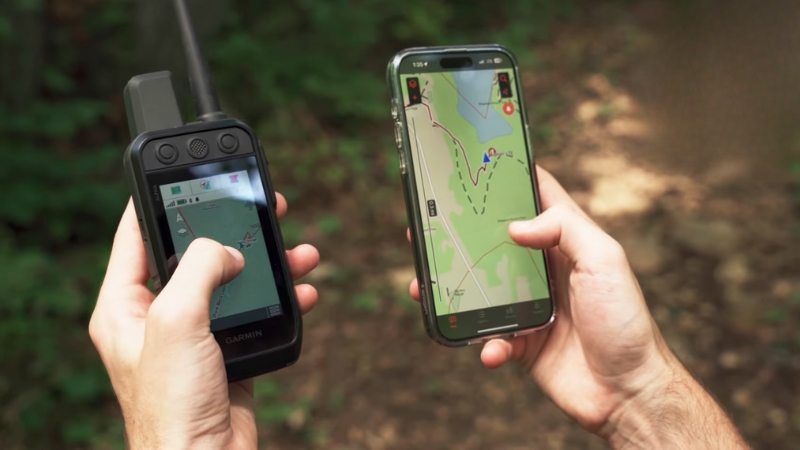
Hunters new to tracking should begin with easy-to-use apps. Start with one dog, test the app’s update rate, then add features. A good mobile GPS for hunting dogs must offer a strong battery, app updates, and clear visuals.
Use a local trail to test settings before applying them to the entire field. If the signal fails or the maps lag, switch to a hybrid collar-and-handheld setup. Do not rely only on mobile phones in extreme terrain.
Tracking Success in Wisconsin Woods
Tim Hart, a seasoned bird hunter based in Eau Claire, once faced a critical test during a woodcock trip near the Chippewa River basin. His two-year-old English setter broke away after flushing a bird and vanished into thick alder cover.
With no clear sound and fading light, Tim checked his Dogtra Pathfinder 2 app. It showed the dog had stopped moving along a narrow game trail near the creek bend.
He followed the path overlay and found the dog twenty minutes later, alert but stuck behind fallen logs. Without the GPS data, Tim said he would have searched in the wrong area based on wind guesswork.
His experience taught him that visual tracking breaks down fast in low brush. He now checks collar calibration before every hunt and carries a spare battery pack to avoid app shutdowns mid-trip.
That day ended with two successful retrieves and no injury. Tim later showed the trail map to a local hunt club to explain how his recovery steps were faster and more accurate than the old methods. He says the app gave him not only peace of mind, but also better planning for future routes.
Technology Trends in Dog Tracking Devices for Hunters (2025)
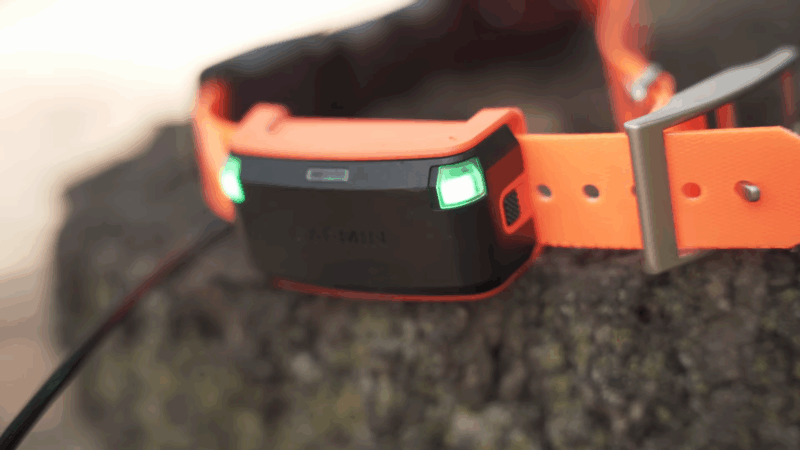
The 2025 market brought significant upgrades to dog location tracking apps. The Fi Series 3 added motion-sensing alerts, but it also now includes temperature sensors inside the collar mount.
This protects dogs from overheating during long runs in warmer states like Georgia or Alabama. Garmin introduced the T20 collar line, which now supports two-way handheld texting with vibration alerts for silent commands in stealth zones.
Pathfinder developers announced new firmware that flags sudden speed changes. That feature alerts handlers if dogs shift from a steady run to a sudden stop, which may signal injury or blocked movement. Some test groups in Idaho used the feature to intercept issues before dogs showed distress.
AI systems are also moving into the space. Beta testers are now reviewing algorithms that learn dog pace over time and detect patterns. Those apps can send a warning if dogs deviate too far from their standard loop or energy output.
Hunting Dog Journal reported on one case where the app detected illness early after logging three days of slow tracking on a normally active pointer.
Safer Hunts with Smarter Apps
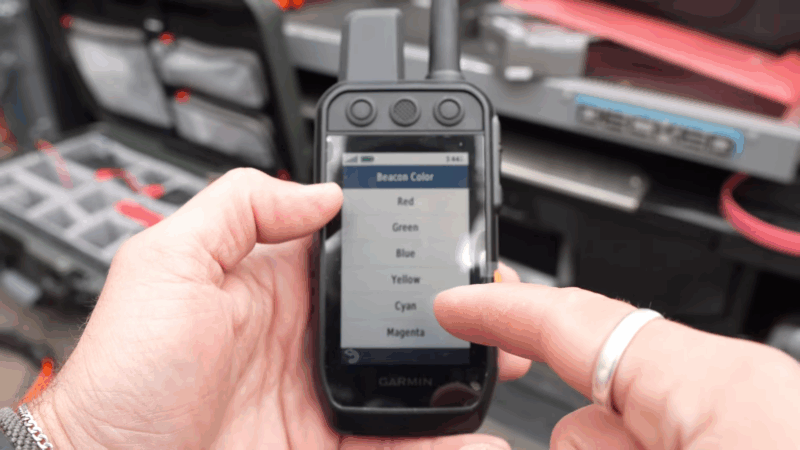
Smarter dog tracking systems now support advanced safety, not just direction. Smart collars in 2025 record location, movement, heat stress, terrain patterns, and even rest-to-run ratios.
Some developers aim to add hydration alerts next. Those tools help handlers pace the dog and plan breaks based on real field data instead of instinct.
Most new GPS dog tracking devices for hunters now come with a modular design. Handlers can swap parts, replace mounts, and sync with watches or tablets.
That improves access during cold weather when phones freeze or wet hands prevent screen control. Ruggedized chargers also keep collars alive for up to 20 hours, providing peace of mind during full-day drives or overnight stays in the woods.
What changed most is not the technology, but how hunters think. They now measure performance by recovery rate, search time, and stress levels.
Smart trackers turn hunting into data-driven decision-making. Hunters today know where their dogs go, how fast they move, and what risks to expect. That precision builds confidence.
Real-time data no longer feels like a luxury; it’s a necessity. It feels like a tool every hunter deserves.

